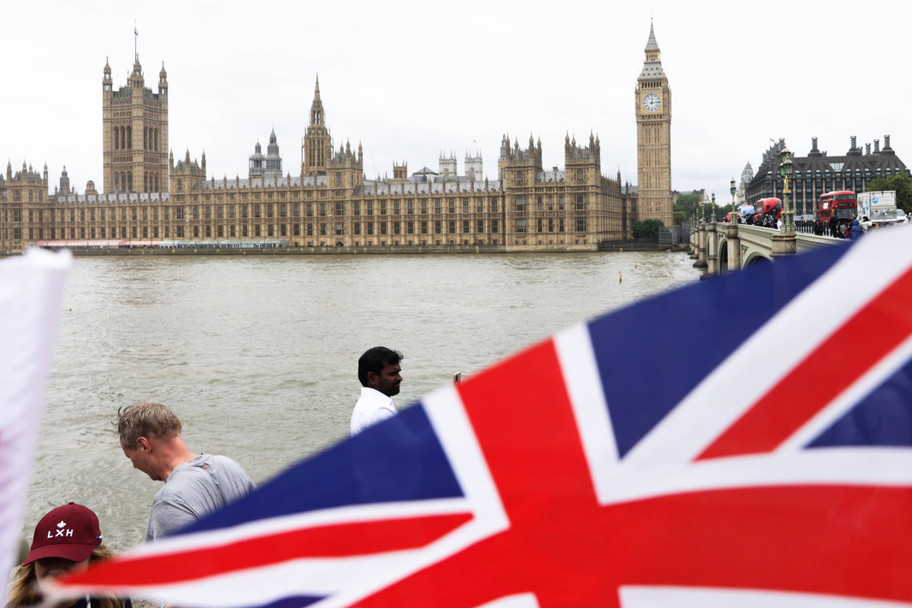Gambling sponsorship in English football faces further scrutiny

In the House of Commons this week, MPs held a debate during the second reading of the Football Governance Bill.
If passed, the bill will pave the way for the introduction of an IFR to oversee the top five tiers of football in England.
Want to play casino games or bet on sports? Check out the best UK online casinos and best UK bookmakers today!
Key responsibilities will include ensuring that fit and proper owners are operating clubs in a financially sustainable manner, and giving supporters a greater say in the game, including the cost of tickets.
Crucially, the impact of gambling and the industry’s relationship with football will come under scrutiny, with some lawmakers wanting to target gambling sponsorship.
Max Wilson, the MP for Cheltenham, conveyed a message that: “The football regulator would have a wider role than currently envisaged in the Bill if the Liberal Democrats were in charge.”
Speaking from the perspective of his party, Wilson’s contribution was focused on gambling and its role in the game.
“We believe that the Bill must go further on problem gambling,” he added.
That sentiment was echoed by Lib Dem peers in the House of Lords, but amendments proposed by Lord Hubbard did not progress and were rejected by the House.
Concerns around the proliferation and prominence of betting in sports prevail, but the government isn’t passing the ball to the new regulator with betting kept separate from the role’s remit.
Football, gambling, and globalisation
This season in the Premier League - the elite level of English football and the most watched competition in the country - 11 of the 20 teams feature a gambling brand as their front-of-shirt sponsor.
That is three more than last season, 2023/24, and if we look back to the inaugural season of the Premier League 32 years ago, there were no gambling sponsors on the shirts. That isn’t because there was no gambling, instead, it reflects the pre-internet era and a time when companies wanted to sell a physical product to consumers.
Fast forward to now, not one Premier League shirt sponsor is marketing a physical product, and only one is headquartered in the United Kingdom. That entity is Standard Chartered, but Liverpool FC’s partner doesn’t permit UK-based customers to open an ordinary bank account.
Nowadays, it's all about reach and brand exposure. This is the impact of globalisation, with gambling firms wanting their logos visible in the most-watched football league in the world.
After the two-and-a-half-year review of the 2005 Gambling Act, gambling sponsorships are still a point of contention.
There have been some changes, but many politicians aren’t satisfied, including Labour’s Carolyn Harris, who wanted a blanket ban on betting sponsorship in sports.
“Nearly 30,000 gambling messages were posted across the Premier League’s opening weekend this season,” she said in parliament.
“That represents a tripling of ads compared with the almost 11,000 recorded over the opening weekend of the season before. Such ads are normalising a dangerous relationship between football and gambling that is destroying lives. Football should not be a gateway drug to problem gambling.”
Concerns create compromise
Although elite football largely exists in a bubble, the clubs aren’t immune to public debate and pressures on the outside.
They are key stakeholders in the issue, and in 2023, the vast majority (18) of Premier League clubs signed up to a voluntary charter to phase out gambling sponsorships on the front of shirts by the start of the 2026/27 campaign.
This could be a positive, but what about ads elsewhere on the shirt and the larger, more prominent LED boards around the perimeter of the pitch? It would be folly to take the brands off the front of the kits, just to increase the exposure by other means.
The debate will continue for sure.
The Gambling Act review only concluded in April 2023, its recommendations are still being implemented and consulted on by the UK Gambling Commission (UKGC), and the sponsorship ban is further along the road to come.
Most MPs appear to be playing a waiting game, to see what change materialises before deciding if further punitive action is required.
Labour’s Lisa Nandy, the UK Culture Secretary, said in the Commons: “I appreciate the support and contribution of the Liberal Democrat spokesman (Wilson), the Honourable Member for Cheltenham, who raised a number of issues. I am happy to meet him to discuss them further.”
“He asked specifically about commercial issues. The regulator will not intervene on commercial matters such as sponsorship. The Government will continue to follow the best available evidence on the impact of gambling sponsorship in sport to inform future decisions.”
-
From outcast to outstanding, world snooker champion Zhao Xintong's rise to greatness after betting ban 6 May, 2025
-
New $15m horse racing super league to feature 12 leading jockeys including Frankie Dettori 6 May, 2025
-
Which Premier League teams will qualify for next season’s Champions League? 2 May, 2025






